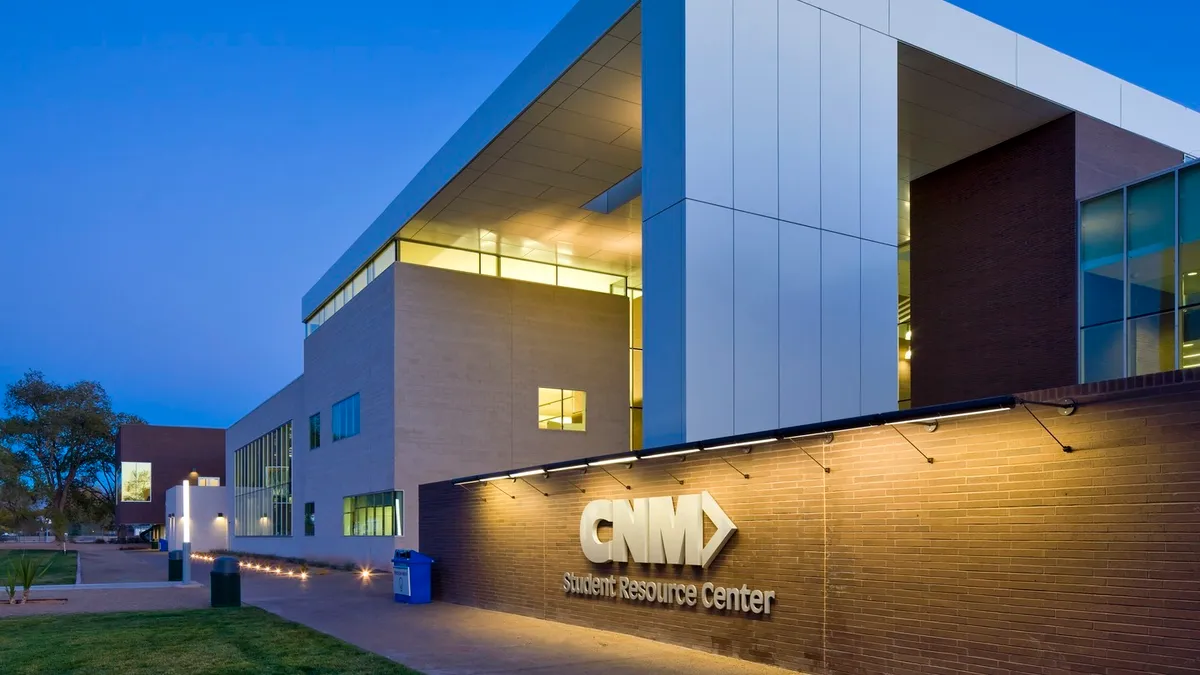Highlights
Big on the block:
As of August 2018, all students are offered the option of a blockchain diploma.
Ready to work:
The college moved to blockchain diplomas to make it easier for employers to verify students' credentials.
Student-owned:
The pursuit of blockchain also stemmed from a desire to give students more ownership over their records.
The digital transformation is upending nearly every facet of higher education. The latest area to turn: diplomas.
A small but growing number of colleges are looking to the blockchain as a way to efficiently (and securely) show verification of student degrees and other credentials. The decentralized, internet-based digital ledger has gained popularity as a medium for transactions of digital currency such as Bitcoin. And it's already being used in fields like logistics and healthcare to track information.
Now colleges are finding ways to make the technology work for their needs, such as by giving students more control over their records. Central New Mexico Community College (CNM), which enrolled 22,278 students this fall, emerged as an early leader in this effort. As of August 2018, it offers all graduates both a physical diploma and a digital one — the latter accessible through open-source technology developed by blockchain startup Learning Machine.
So far, CNM has offered blockchain associate degrees and certificates to around 2,400 of its students. Roughly 400 of them, or about 17% of that group, have opted to accept and use it. CNM expects the number of students accepting the diploma to increase in future terms.
"We are absolutely thrilled about this percentage of adoption early on," said Feng Hou, chief information officer at CNM, who noted the college can observe who is verifying students' diplomas via blockchain. For example, students can share their digital diploma with a prospective employer through a web link or JSON file. The recipient can view the specific record and quickly verify the student completed a degree or certificate with CNM.
The college uses a framework called Blockcerts, which it likens to a "digital wallet" that students can use to store their credentials on the blockchain. Similar efforts are underway at other colleges such as MIT and Southern New Hampshire University.
All new technologies face initial hurdles, and blockchain presents no shortage of them for even the most interested colleges. The need to build institutional competency around blockchain as a barrier to entry and unfamiliarity with the technology by end-users such as employers and other colleges create significant barriers for further use and exploration.
Advocates for the use of blockchain in higher education say it will become increasingly important as the concept of lifelong learning becomes more popular, with students collecting degrees, certifications and other credentials throughout their careers. Presently, they lack an easy way to show proof of all of those separate accomplishments in one place. It could also help create a verification system that could help employers find skills matches and allow students to more easily transfer credits between institutions.
"We envision a system where companies can communicate directly through this blockchain technology and put bids out for specific skills they need and connect to students without any type of bureaucratic system to oversee the records," Tobe Phelps, senior director of online college at CNM, told Education Dive earlier this year. "We can have employers and students connect directly, where the institution doesn't have to be a middle link. Students will know immediately once they get their degree, there is a potential to get into this job network."
In addition to creating a channel for student records verification, CNM is also part of industry efforts to explore other use-cases for blockchain. For example, it partnered with IBM to develop a blockchain education platform. Together they are building a stackable micro-credentialing solution through which students can earn digital badges to show prospective employers they have mastered soft skills such as critical thinking and problem-solving.
CNM called on the University of New Mexico and local hospital Presbyterian Healthcare Services to help inform their work by giving insight into factors such as workforce skills needs and the ability to transfer credits to a four-year college, as well as to help determine other ways blockchain can be used in higher education. The group plans test a prototype of the stackable micro-credentialing solution in early 2019.
"We envision a system where companies can communicate directly through this blockchain technology and put bids out for specific skills they need and connect to students without any type of bureaucratic system to oversee the records."

Tobe Phelps
Senior director of online college, CNM
Working with employers who might hire CNM students and with administrators at four-year colleges where their students might transfer was important to the exercise, Hou said.
"For us, this is not just a group of technical people working on it," he said. "We have our deans participating, we have our professors who are actually designing the micro-credentials, we have student enrollment services, we have finance, we have even the legal counsel sitting in to study all different aspects of this new thing."
CNM's plans suggest it will continue to be a leader in blockchain. Earlier this year, it received a grant of about $80,000 from the New Mexico Attorney General's office to develop blockchain uses, train coding instructors and make its services available to government agencies. And it is working with the City of Albuquerque to develop a "blockchain bootcamp" to train city employees on using the technology for services such as utility performance. Hou also cited the development of a common course catalog and universal student IDs as areas where blockchain can play a role.
Read More
-
Institutional Innovation: How blockchain could transform student ROI
By Shalina Chatlani • April 19, 2018 -
4 ed tech trends colleges should be ready for
By Hallie Busta • Nov. 5, 2018



















